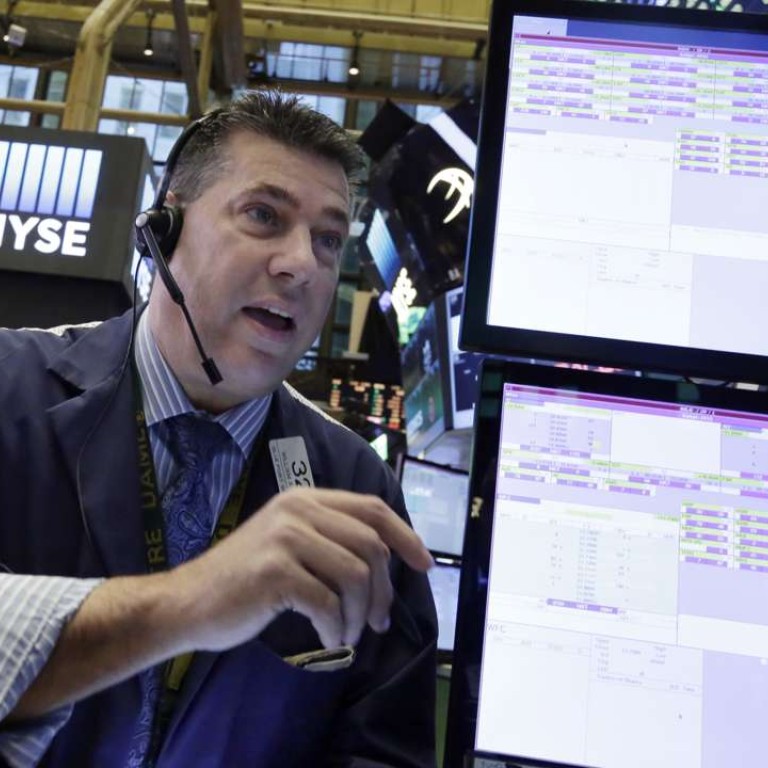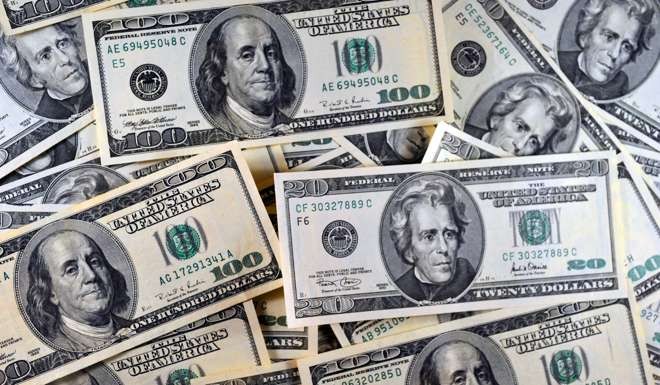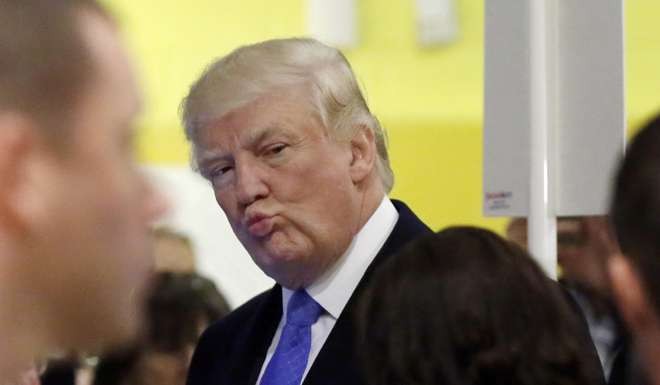
Trump’s victory triggers a bout of schizophrenia in markets
Stock traders are ignoring signals from the bond market as investors find different ways to interpret ‘Trumponomics’
Prior to Donald Trump’s momentous victory in last week’s US presidential election, the most conspicuous gauge of investor sentiment towards a possible Trump presidency was the Mexican peso, dubbed the “Trumpometer” because of the president-elect’s pledge to impose severe trade restrictions on Mexico.
Now that Trump has been elected US president, the peso’s performance against the dollar has become a sideshow as the world’s most liquid, or actively traded, financial assets, such as government bonds, equities and major currencies, react nervously to the real estate magnate’s stunning victory.
Divergence is, for the time being, the watchword for post-election markets.
The very fact that there has been a strong - indeed excessive - divergence in the performance of asset classes following the US election suggests there is considerable uncertainty about the policies that Trump will pursue
In a decidedly unexpected development, stock markets have risen since Trump’s victory, with the benchmark Dow Jones Industrial Average up nearly 3 per cent, while the dollar index, a measure of the greenback against a basket of its peers, has increased 3.5 per cent to trade close to a 14-year high.
Government bonds, however, have fallen sharply. The yield on the benchmark 10-year US Treasury bond has shot up more than 35 basis points to 2.22 per cent - its highest level since early January. German and Japanese bond yields have also risen sharply. According to Bloomberg, the value of negative-yielding government bonds plunged 14 per cent last week to US$8.7 trillion, down from nearly $12 trillion as recently as September.

Equities have risen because of expectations that Trump will introduce an aggressive fiscal stimulus package of infrastructure spending and tax cuts which will boost US growth, particularly if accompanied by much lighter regulation in the financial sector - another one of Trump’s campaign pledges.
There is an inescapable feeling that investors are getting ahead of themselves
However the corollary of stronger growth is higher inflation. Futures markets are already attaching a nearly 95 per cent probability to a US interest rate hike next month and now anticipate a faster pace of monetary tightening next year as the Federal Reserve comes under pressure to head off a debt-fuelled surge in inflation.
The beginning of what is being called a “Trumpflation trade” has been particularly detrimental to emerging market assets. The MSCI EM Index, a leading gauge of stocks in developing economies, has fallen 6 per cent since Trump’s victory while emerging market local currency bonds suffered their sharpest losses last week since 2008.
Emerging market assets are under more strain mainly because of the post-election surge in the dollar, which is rising because of expectations that US interest rates will rise more quickly under a Trump presidency.
Indeed, according to a report published on Tuesday by the Bank for International Settlements (BIS), the so-called central bankers’ bank, the greenback is now the main gauge of investors’ appetite for risk, supplanting the Vix Index, Wall Street’s “fear gauge” which measures anticipated volatility in US stocks.
Yet the very fact that there has been a strong - indeed excessive - divergence in the performance of asset classes following the US election suggests there is considerable uncertainty about the policies that Trump will pursue.

There is an inescapable feeling that investors are getting ahead of themselves.
Quite aside from the fact that international investors suddenly seem to be neglecting the protectionist and nationalist instincts of Trump, equity markets appear to be disregarding the signals from the bond market. If Trump’s expansionary fiscal policies will force the Fed to raise rates more aggressively, then surely asset prices and the economy will be adversely affected by tighter monetary policy.
The reality is that, as with Britain’s decision to leave the European Union, the implications of Trump’s victory for markets and the global economy remain unclear.
These are early days as far as Brexit and a Trump presidency are concerned.
What is clear, however, is that political developments are exerting a strong influence on markets, fuelling volatility and making it extremely difficult for investors to assess and price risks accurately.
The foreign exchange markets, in particular, have become acutely sensitive to domestic politics, with the dollar, sterling and the euro being driven increasingly by the perceived impact of populist and anti-establishment sentiment on the policy environment.
Investing in today’s markets is not for the faint-hearted.
Nicholas Spiro is a partner at Lauressa Advisory

